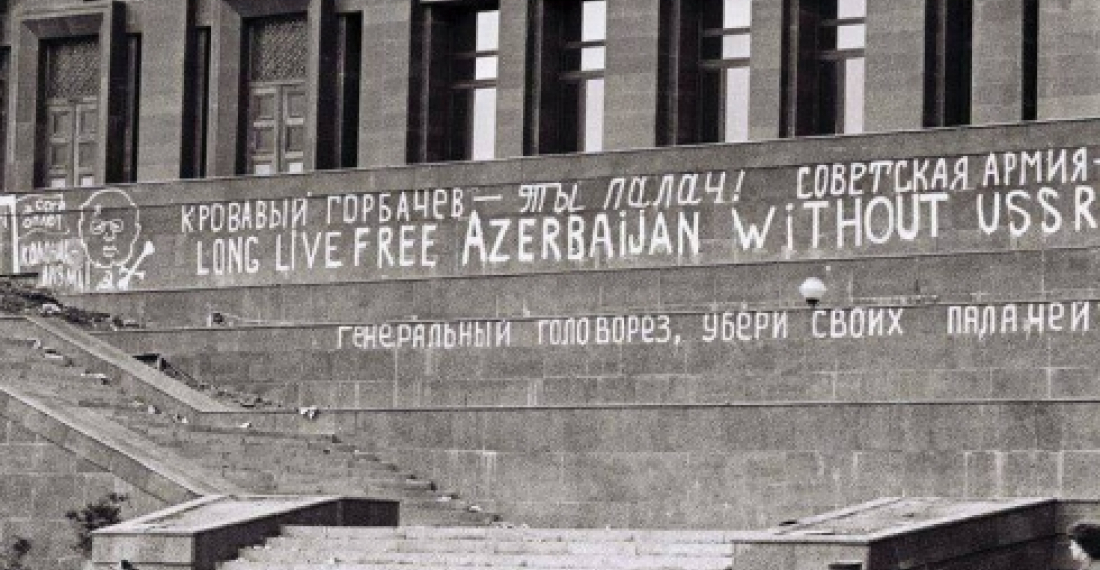Народ Азербайджана отмечает 25-ю годовщину Черного января. 19 января 1990 года, Президиум Верховного Совета СССР утвердил постановление, подписанное Михаилом Горбачевым, о чрезвычайном положении в Баку и в некоторых других местах Азербайджанской ССР.
Поздно ночью 19 января 1990 года, двадцать шесть тысяч советских солдат вошли в Баку, пройдя через баррикады, чтобы подавить продолжающиеся протесты во главе с Народным фронтом. В результате этих действий более ста мирных азербайджанцев были убиты. Также при столкновениях, которые последовали за этим погибли несколько советских солдат.
Отмечая 25-ю годовщину резни президент Азербайджана Ильхам Алиев во вторник посетил Аллею Мученников и возложил венок к мемориалу Вечного огня.
Политический редактор Commonspace.eu сделал следующий комментарий в честь годовщины и ее значения:
Черный январь несет огромное значение в истории современного Азербайджана. Он знаменует собой момент, когда советская власть в Азербайджане стала несостоятельной, и это в значительной мере способствовало распаду СССР. Развертывание войск и танков на улицах крупного советского города, и резня, которая за этим последовала, запятнали имидж СССР и его руководства. Михаил Горбачев впоследствии признает, что объявление чрезвычайного положения в Баку, что впоследствии открыло дорогу для военного развертывания, было большой ошибкой в его политической карьере.
Эти события также обозначили низшую точку в отношениях между Азербайджаном и Россией, а этот вопрос остается чувствительным в отношениях между двумя странами, которые сейчас сосуществуют независимо друг от друга. Сегодня, когда правительство Азербайджана поддерживает более тесные отношения с Россией, чем когда-либо в истории независимого Азербайджана, годовщина вызывает некоторую неловкость у руководства в Баку. Таким образом, несмотря на то, что официально годовщина отмечается, кажется, нынешнее правительство пытается меньше акцентировать на ее.
С другой стороны, люди Азербайджана все еще переживают горечь из-за того, что события Черного января не были должным образом оценены международным сообществом в то время в отличие от протестов, которые последовали за подобным инцидентами в странах Балтии год спустя. Некоторые азербайджанцы утверждают, что история повторяется. В период беспрецедентного подавления прав человека и активистов гражданского общества в Азербайджане в прошлом году международная реакция также отсутствовала.
источник: commonspace.eu
фото: Антисоветское граффити на стенах главного правительственного здания в Баку. (фото из архива)






